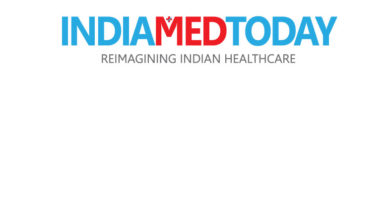Decoding Precision Therapy: Transformative Role of Omics Sciences

Personalised medicine will impact patients and healthcare systems in ways that could only have been imagined 15 years ago when the human genome was first sequenced
In recent years, precision therapy has become a groundbreaking concept that addresses patients’ need for tailored medical treatment. With advances in science and technology, this revolutionary approach has evolved to harness the power of omics science, including genomics, transcriptomics, proteomics and metabolomics, to unravel the complexities of human biology. In this way, physicians can offer their patients tailored treatments with unprecedented precision.
Personalised medicine will impact patients and healthcare systems in ways that could only have been imagined 15 years ago when the human genome was first sequenced. While the discovery of genome-based technologies has accelerated, adoption into clinical medicine has only begun. Let’s take a look at how precision therapy is gaining global attention, with the integration of omics science a central part of this groundbreaking paradigm shift.
In 2015, President Barack Obama launched a US government-funded precision medicine initiative called ‘All of US’ with more than one million participants contributing data from more than a decade of genetic sequencing, electronic health records, personal information and digital health technologies. This data is being analysed to better understand the disease and improve diagnosis and treatment, which will revolutionise healthcare at all stages of life.
Precision therapy, based on individual genetic and molecular profiles, is considered a major healthcare milestone,
providing highly personalised, effective treatments while minimising side effects. This approach represents a fundamental shift toward patient-centred healthcare, which includes early disease prevention by identifying genetic predisposition. As science and technology advance, precision therapy is increasingly becoming a beacon of hope for patients and a transformative force in modern medicine for the treatment of complex and rare diseases. Central to this paradigm shift is the integration of “omics”sciences, including genomics,transcriptomics, proteomics, and metabolomics. It plays a critical role in deciphering the intricate web of human biology and enables the precise tailoring of therapies.
Genomics: Genomics deals with our genes, which are essentially the instruction manuals that make us who we are. Our genes determine everything from our eye colour to our body’s response to a particular disease. The human genome, a complete set of a person’s DNA, contains about 100,000 genes. Of these, only 6000 genes with known function have been identified.
We have just scratched the surface of the whole wealth of genetic information. Advances in genomics are helping us analyse the unique genetic code and uncover genetic variations associated with disease. This information is a
critical factor in tailoring treatments to a specific genetic predisposition.
Transcriptomics: Transcriptomics is the study of RNA molecules produced by active genes and provides a dynamic view of gene expression. It’s like capturing the thoughts and feelings of genes in real time. By analysing RNA, researchers gain insights into which genes are actively involved in health and disease. Not only coding RNAs but there is a whole world of small non- coding RNAs (microRNAs) which also interplay and contribute significantly to cellular functions. In cancer research, for example, transcriptomics helps identify the expression
of genes responsible for tumour growth and metastasis. With this information, scientists can develop drugs that specifically turn off these rogue genes, leading to more precise and less toxic therapies.
Proteomics: Proteomics deals with the intricate world of proteins, which carry out a multitude of functions, from digesting food to developing defence against infections. Understanding proteomics allows us to unravel the rotein
expression, protein-protein, protein-DNA, and other complex interactions within cells.
Metabolomics: Metabolomics focuses on the chemical processes occurring within our bodies, akin to examining the ingredients of a recipe. By scrutinising metabolites—small molecules produced during metabolism—scientists gain insights into an individual’s unique biochemical profile. This is invaluable in diagnosing and managing metabolic disorders, such as diabetes. Metabolomics enables clinicians to tailor dietary and pharmacological interventions to a patient’s specific metabolic needs, optimising treatment outcomes.
The collaborative power of Omics: The synergy of the omics sciences is evident when they work together in harmony. Imagine a scenario in which a cancer patient’s genomic data reveals a specific mutation. Transcriptomics identifies highly active genes associated with that mutation, and proteomics identifies dysfunctional proteins. Metabolomics then provides insights into altered metabolic pathways. With this holistic view, tailored treatment plans replace one-size-fits-all therapies, spare healthy cells and reduce side effects. Metabolomics provides a comprehensive view of a person’s health and disease profile, enabling precise treatments.
The increasing fusion of omics sciences with precision therapy holds significant potential to profoundly benefit patients and the healthcare sector. Patientsare poised to receive treatments that not only exhibit heightened efficacy but also boast reduced side effects, ultimately elevating their overall well-being. Simultaneously, healthcare providers shall observe improved treatment outcomes, cost reductions, and heightened patient satisfaction, all of which contribute to the industry’s overarching goal of delivering superior, more accessible, and patient-focussed care. This mutually advantageous partnership between precision therapy and omics sciences signifies a transformative epoch in the evolution of healthcare.


